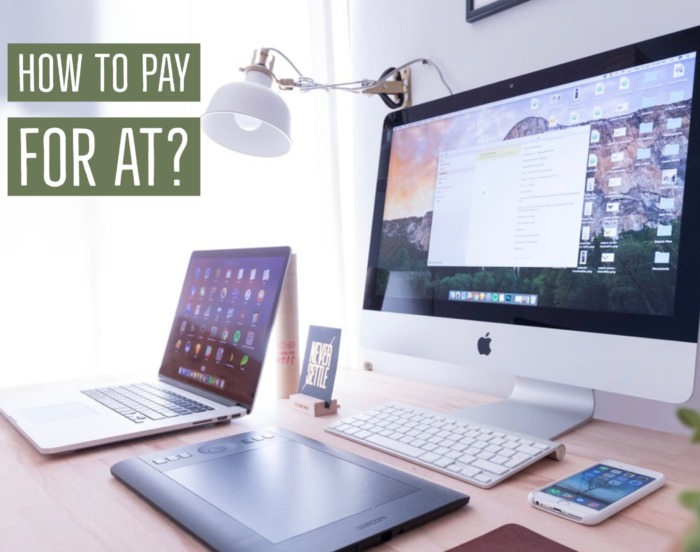
The two overarching goals of the INDATA Project is to educate Hoosier’s about assistive technology and the acquisition of assistive technology to help individuals make educated decisions about what device(s) is a best fit for a person’s needs. We accomplish these goals by providing educational and hands-on opportunities such as weekly tech tip videos, podcasts, full day trainings, device demonstrations, and operating an equipment lending library.
Once a person is educated about the equipment and has been able to get their hands on the AT through the program, how to pay for the needed assistive technology is often a challenge. Here are some of the places to look for funding options:
Insurance
- Medicare– Insurance available to individuals who are 65 and older and younger people with disabilities. Medicare may cover some AT, but the coverage may be limited.
- Medicaid-State health program for individuals with low income. Medicaid may cover some AT, but coverage may be limited.
- Medicaid Waiver– allows for additional services and may cover more specialized AT needs.
- Private Insurance-AT must be deemed medically necessary and prescribed by a physician. Coverage varies by insurance policy and the insurance company should be contacted directly to determine the coverage.
State Programs
- State AT Programs– Every state and US territory has a federally-funded assistive technology program, such as the INDATA Project for Indiana, that can provide information & referral services for funding and often have a low-interest bank loan program that can be used to purchase AT. The INDATA Project is one of the AT Acts that has a low-interested extended-term financial loan program that can be used to purchase assistive technology.
- Vocational Rehabilitation Services– Every state has a federally-funded agency that assists individuals with disabilities in obtaining or maintaining employment. VR can often pay for assistive technology evaluations and equipment that is necessary to prepare for, get or, keep a job.
Disability-focused organizations
(Disability-focused organizations usually operate nationwide and often have state and local chapters.)
- American Council of the Blind
- American Foundation for the Blind
- National Multiple Sclerosis Society
- United Cerebral Palsy (UCP)
- iCanConnect(for individuals with both vision & hearing loss)
- Other Disability Organizations
Employer
The ADA requires employers to make reasonable accommodations for a person with a disability who is qualified for the job so they can perform the essential functions of that job. Click here to learn an employer’s responsibility in providing reasonable accommodation.
Public schools
Public schools can often pay for special education technology tools and other technology that is written in an IEP.
Social Organizations
- Elks: The Elks national organization devotes over $80 million to projects, and one area set up to assist children with physical disabilities. Use the Lodge Locator to find contact information for your local branch.
- Kiwanis: The Kiwanis Children’s Fund has resources that service children through grants, scholarships, and youth programs.
- Knights of Columbus: The Knights of Columbus runs many different support programs, including a wheelchair mission and Special Olympics. Check out the national and local branches for grant opportunities.
- Lions Club: The Lions Club typically supports and funds programs and equipment for people with vision disabilities. Check your local branch for their specific grants.
- Rotary: The Rotary Club provides grants for education and youth programs. From helping with scholarships, adaptive bikes, local schools, make sure you check your local club to see what plans they have available.
